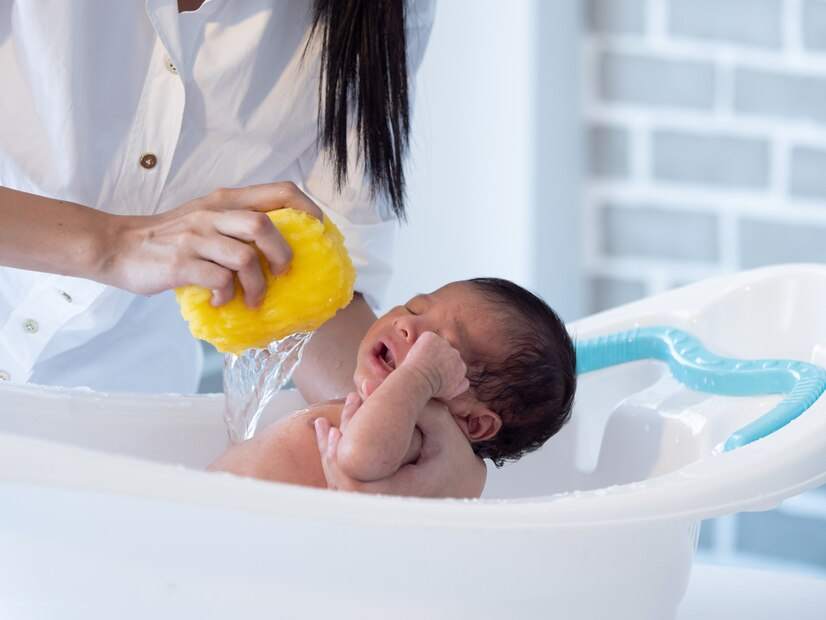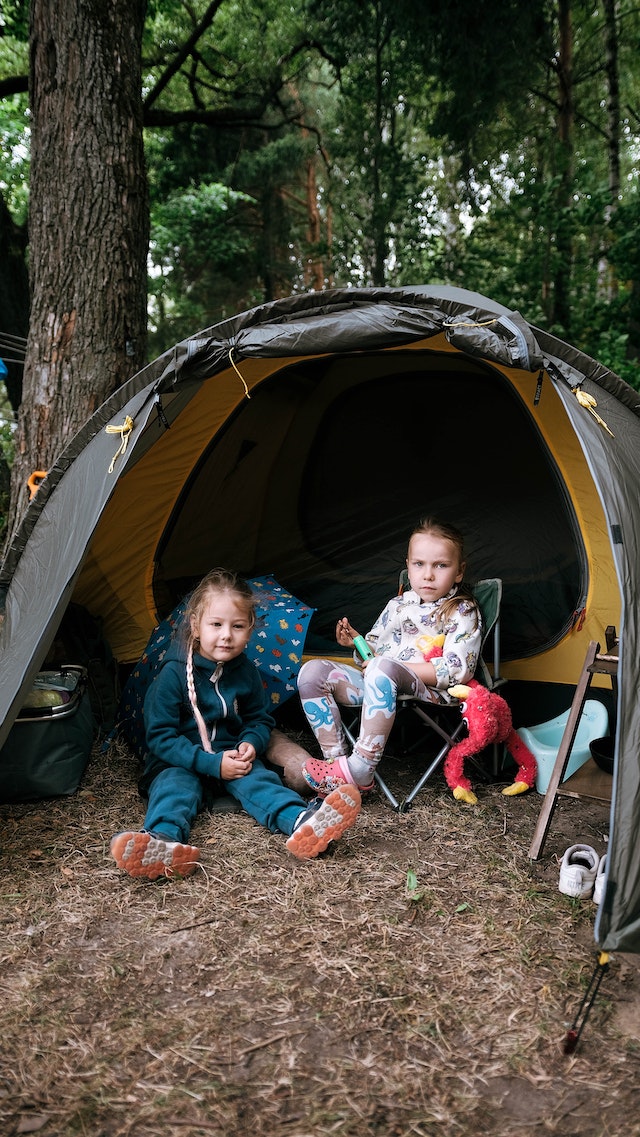As the seasons change,
so do many of our daily routines.
From switching out our wardrobes to adjusting our diets,
we adapt to the weather and its effects on our bodies.
One aspect of our routine that might not be as commonly thought about,
however,
is our choice of soap for our little ones.
Does baby soap really need to change according to the season?
The short answer is yes,
it can be beneficial to switch up baby soap depending on the season.
Here are a few reasons why:
• Dry skin in winter:
During the colder months,
the air tends to be drier and less humid.
This can lead to dry,
itchy skin for babies and adults alike.
Using a moisturizing baby soap during this time can help
keep your little one’s skin hydrated and prevent discomfort.
• Increased sweating in summer:
In the summer months, higher temperatures and increased activity levels can lead to more sweating.
This can cause a buildup of bacteria on the skin,
which can lead to unpleasant odors and even infections.
Using a baby soap with antibacterial properties can help prevent these issues.
• Allergies in spring and fall:
Many people experience seasonal allergies in the spring and fall, and babies are no exception.
Choosing a hypoallergenic baby soap during these
seasons can help prevent irritation and allergic reactions.
Of course, it’s important to remember that every baby is different and may have unique skin needs.
It’s always a good idea to talk to your pediatrician if you have concerns about your baby’s skin or
if you’re not sure which baby soap to use.
When choosing a baby soap,
look for products that are specifically designed for infants and young children.
These products are typically gentler and less likely to cause irritation than soaps meant for adults.
Avoid products that contain harsh chemicals or fragrances, as these can be irritating to delicate baby skin.
Overall, while it may not be necessary to switch up baby soap every season,
doing so can be beneficial for your little one’s skin.
By choosing a gentle, moisturizing soap in the winter,
an antibacterial soap in the summer, and a hypoallergenic soap in the spring and fall,
you can help keep your baby’s skin healthy and comfortable all year round
In winter season what is required in baby soap?
As the winter season arrives,
parents have to take extra care of their babies’ skin,
which can become dry, itchy, and
sensitive due to the cold weather.
One of the essential items in a baby’s skincare routine is soap,
and choosing the right kind of baby soap can make a significant difference
in keeping their delicate skin healthy and moisturized.
When it comes to selecting a baby soap for winter, parents should look for the following qualities:
• Moisturizing ingredients:
Winter weather can strip the natural oils from a baby’s
skin,
leaving it dry and itchy.
Look for baby soaps that contain moisturizing ingredients such as shea butter,
cocoa butter, glycerin, or coconut oil.
These ingredients will help to keep your baby’s skin soft, supple, and hydrated.
• Gentle and mild:
A baby’s skin is more delicate than an adult’s,
and harsh soaps can cause irritation and dryness.
Choose a soap that is gentle and mild, with a pH balance close to that of a baby’s skin.
Soaps that are free of fragrances, dyes, and harsh chemicals are a good choice
• Hypoallergenic:
Some babies may have sensitive skin and may be prone to rashes, eczema, or allergies.
If your baby has a history of skin issues,
choose a hypoallergenic soap that is specially formulated for sensitive skin.
These soaps are usually free of irritants and allergens
and are less likely to cause any adverse reactions.
• Antimicrobial properties:
Winter season brings with it a higher risk of cold and flu viruses,
which can spread easily through skin contact.
Choose a baby soap that has antimicrobial properties,
such as tea tree oil or neem oil, to help prevent the
spread of germs and bacteria
In conclusion, choosing the right
baby soap for winter is essential for
keeping your baby’s skin healthy and moisturized.
Look for a soap that is gentle, mild, moisturizing, hypoallergenic,
and has natural or antimicrobial ingredients.
Remember to avoid harsh chemicals and fragrances
that can irritate your baby’s skin, and
always patch test any new products before using them on your baby’s delicate skin.
Baby soap for winter.
In winter season what is required in baby soap?
As the winter season arrives,
parents have to take extra care of their babies’ skin,
which can become dry, itchy, and
sensitive due to the cold weather.
One of the essential items in a baby’s skincare routine is
soap, and choosing the right kind of
baby soap can make a
significant difference in keeping
their delicate skin healthy and moisturized.
When it comes to selecting a baby soap for winter,
parents should look for the following qualities:
• Moisturizing ingredients:
Winter weather can strip the natural oils from a
baby’s skin, leaving it dry and itchy.
Look for baby soaps that contain
moisturizing ingredients such as
shea butter, cocoa butter, glycerin, or coconut oil.
These ingredients will help to keep your
baby’s skin soft, supple, and hydrated.
• Gentle and mild:
A baby’s skin is more delicate than an adult’s,
and harsh soaps can cause irritation and dryness.
Choose a soap that is gentle and mild,
with a pH balance close to that of a baby’s skin.
Soaps that are free of fragrances,
dyes, and harsh chemicals are a good choice.
• Hypoallergenic:
Some babies may have sensitive skin and
may be prone to rashes, eczema, or allergies.
If your baby has a history of skin issues,
choose a hypoallergenic soap that is
specially formulated for sensitive skin.
These soaps are usually free of irritants and allergens
and are less likely to cause any adverse reactions.
• Antimicrobial properties:
Winter season brings with it a higher
risk of cold and flu viruses,
which can spread easily through skin contact.
Choose a baby soap that has
antimicrobial properties,
such as tea tree oil or neem oil,
to help prevent the spread of germs and bacteria.
• Natural ingredients:
Natural ingredients are always a
good choice for baby soap,
as they are less likely to cause any adverse reactions.
Look for soaps that are made with
natural ingredients such as chamomile,
aloe vera, or calendula, which can soothe and calm a baby’s skin.
In conclusion, choosing the right
baby soap for winter is essential for
keeping your baby’s skin healthy and moisturized.
Look for a soap that is gentle, mild, moisturizing, hypoallergenic, and
has natural or antimicrobial ingredients.
Remember to avoid harsh chemicals and
fragrances that can irritate your baby’s skin,
and always patch test any new products
before using them on your baby’s delicate skin.
what is required in baby soap in summer season
As the weather heats up in the summer season,
parents need to pay extra attention to their baby’s skincare routine.
The hot and humid weather can make
babies more prone to skin issues such as rashes, irritation, and sweating.
One of the essential items in a baby’s
skincare routine is soap, and choosing
the right kind of baby soap can make a significant
difference in keeping their delicate skin healthy and fresh.
When it comes to selecting a baby soap for summer,
parents should look for the following qualities:
• Cooling ingredients:
Summer weather can cause a lot of sweating,
leading to discomfort and irritation.
Look for baby soaps that contain
cooling ingredients such as cucumber, mint, or aloe vera.
These ingredients will help to soothe and refresh your
baby’s skin and keep it feeling cool and comfortable.
• Gentle and mild:
Just like in winter, parents should
choose a gentle and mild soap for their babies in summer.
Harsh soaps can cause dryness and irritation,
leading to more sweating and discomfort.
Choose a soap that is pH-balanced and free of
fragrances, dyes, and harsh chemicals.
• Moisturizing properties:
While summer weather can cause sweating,
it can also dehydrate the skin.
Choose a baby soap that has moisturizing properties to keep your baby’s skin hydrated and soft.
Look for ingredients such as shea butter,
cocoa butter, glycerin, or coconut oil,
which will help to lock in moisture.
• Sun protection:
Babies have sensitive skin, and exposure to the sun can cause damage and skin issues.
Choose a baby soap that contains
sunscreen with an SPF of at least 30.
This will help to protect your baby’s skin from harmful UV rays.
• Natural ingredients:
Natural ingredients are always a good
choice for baby soap,
as they are less likely to cause any adverse reactions.
Look for soaps that are made with
natural ingredients such as chamomile,
aloe vera, or calendula, which can soothe and calm a baby’s skin.
what is required in baby soap in rainy season
The rainy season can be a tricky time
for parents when it comes to taking care of their babies’ delicate skin.
The high humidity levels and increased
moisture in the air can cause several skin issues,
including rashes, fungal infections, and irritation.
One of the essential items in a baby’s
skincare routine is soap, and choosing
the right kind of baby soap can make
a significant difference in keeping
their delicate skin healthy and protected during the rainy season.
When it comes to selecting a baby soap for the rainy
season, parents should look for the following qualities:
• Anti-fungal properties:
The damp and humid weather during the rainy season
creates the perfect environment for
fungal infections such as ringworm,
thrush, and diaper rash.
Choose a baby soap that has
anti-fungal properties to prevent these infections.
Look for ingredients such as
tea tree oil, neem oil, or turmeric,
which have natural anti-fungal properties.
• Gentle and mild:
Just like in other seasons, parents
should choose a gentle and mild soap for their babies during the rainy season.
Harsh soaps can cause dryness and irritation,
leading to more skin issues.
Choose a soap that is pH-balanced and free of
fragrances, dyes, and harsh chemicals.
• Moisturizing properties:
The rainy season can also cause
skin dryness due to the frequent exposure to rainwater.
Choose a baby soap that has
moisturizing properties to keep your
baby’s skin hydrated and soft.
Look for ingredients such as shea butter, cocoa butter,
glycerin, or coconut oil, which will help to lock in moisture.
• Natural ingredients:
Natural ingredients are always a
good choice for baby soap, as they are less likely to cause any adverse reactions.
Look for soaps that are made with natural ingredients such as chamomile,
aloe vera, or calendula, which can soothe and calm a baby’s skin.
• Hypoallergenic:
Some babies may have sensitive skin and may be prone to rashes, eczema, or allergies.
If your baby has a history of skin issues, choose a
hypoallergenic soap that is specially formulated for sensitive skin.
These soaps are usually free of irritants and allergens
and are less likely to cause any adverse reactions.
In conclusion,
choosing the right baby soap for the
rainy season is essential for keeping your baby’s skin healthy and protected.
Look for a soap that is gentle,
mild, moisturizing, anti-fungal, and has natural or hypoallergenic ingredients.
Remember to avoid harsh
chemicals and fragrances that can irritate your baby’s
skin, and always patch test any new products before
using them on your baby’s delicate skin.
By following these tips, parents can ensure their baby’s
skin stays healthy and protected during the rainy season.
what is required in baby soap in autumn seasons?
Autumn is a season of changing weather, and it can affect your baby’s delicate skin.
The cool and dry weather can cause dryness and
itchiness, while the wind and dust can
cause irritation and rashes.
One of the essential items in a baby’s
skincare routine is soap, and
choosing the right kind of baby soap can make a
significant difference in keeping their
delicate skin healthy and protected during the autumn season.
When it comes to selecting a baby soap for the autumn season,
parents should look for the following qualities:
• Moisturizing properties:
The cool and dry weather during
the autumn season can cause skin dryness,
leading to discomfort and itchiness.
Choose a baby soap that has moisturizing properties to keep your baby’s skin hydrated and soft.
Look for ingredients such as shea butter,
cocoa butter, glycerin, or coconut oil, which will help to lock in moisture.
• Gentle and mild:
Just like in other seasons, parents should choose a gentle
and mild soap for their babies during the autumn season.
Harsh soaps can cause dryness and irritation,
leading to more skin issues.
Choose a soap that is pH-balanced and
free of fragrances, dyes, and harsh chemicals.
• Anti-inflammatory properties:
The autumn season can also cause skin inflammation
due to allergies or other environmental factors.
Choose a baby soap that has anti-inflammatory properties to soothe and calm your baby’s skin.
Look for ingredients such as chamomile,
calendula, or aloe vera, which have natural anti-inflammatory properties.
• Hypoallergenic:
Some babies may have sensitive skin and may be prone to rashes, eczema, or allergies.
If your baby has a history of skin issues, choose a
hypoallergenic soap that is specially formulated for sensitive skin.
These soaps are usually free of irritants and allergens
and are less likely to cause any adverse reactions.
• Natural ingredients:
Natural ingredients are always a good choice for baby
soap, as they are less likely to cause any adverse reactions.
Look for soaps that are made with natural ingredients such as chamomile,
aloe vera, or calendula, which can soothe and calm a baby’s skin.
In conclusion,
choosing the right baby soap for the autumn season is
essential for keeping your baby’s skin healthy and protected.
Look for a soap that is gentle,
mild, moisturizing, anti-inflammatory, and
has natural or hypoallergenic ingredients.
Remember to avoid harsh chemicals and
fragrances that can irritate your baby’s skin, and
always patch test any new products before using them on your baby’s delicate skin.
By following these tips, parents can ensure their baby’s
skin stays healthy and protected during the autumn season.
![]()











